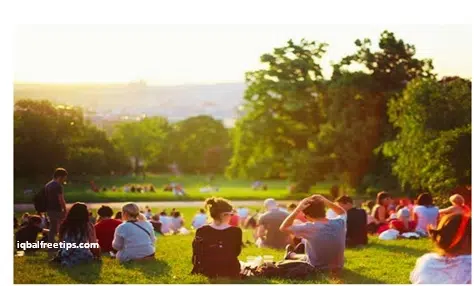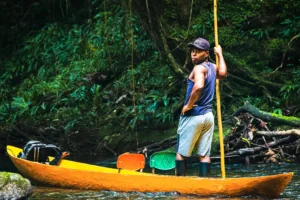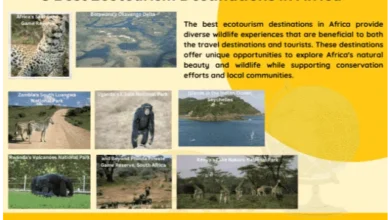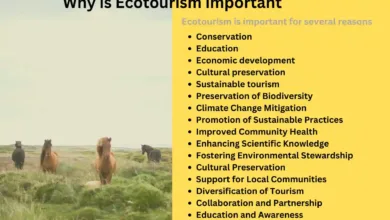
Role of Ecotourism in the Community
Ecotourism is a form of tourism that has the goal of raising awareness and appreciation of the natural environment, while also providing sustainable economic benefits to local communities. With more travelers seeking unique experiences that are outside of traditional tourist destinations, ecotourism has become increasingly popular in recent years. But what is the important role of ecotourism in the community?
In this blog post, we will explore how ecotourism can benefit locals, help protect wildlife and ecosystems, create jobs and generate income for local people, and provide educational opportunities about nature conservation. We will emphasize the role of ecotourism in the community concerning various developmental aspects.
Read on to learn more about the important benefits of ecotourism.
What is Ecotourism?
Ecotourism, also known as green tourism, is a type of tourism that is environmentally friendly and sustainable. It often involves activities such as hiking, camping, bird watching, and visiting national parks. It is a growing industry worldwide, offering many benefits to the environment and the local community. One of the most important role of ecotourism in the community is preserving natural resources. This type of tourism relies on eco-friendly practices such as using recycled materials, conserving energy, and protecting wildlife habitats. By doing this, ecotourism helps to preserve the environment for future generations.
Role of Ecotourism in the Community
The role of ecotourism in the community is to help to preserve the environment and improve the quality of life for local communities. Another important role of ecotourism is improving the quality of life for locals.
This type of tourism provides an alternative to traditional forms of tourism that can often be damaging to the environment. Its projects often involve working with local communities to provide training and employment opportunities. This can help to improve the economy and provide a better standard of living for residents.
It is an important part of sustainable development, and it offers many benefits to both the environment and local communities. If you are interested in learning more about ecotourism or finding eco-friendly vacation options, many websites and organizations can offer more information.
The Definition of Community
There are many different types of communities, but a community is a group of people who live in the same area and share common interests. In terms of ecotourism, community involvement is important for several reasons.
-
- Ecotourism can provide much-needed economic opportunities for communities that are often located in remote or economically disadvantaged areas. By providing jobs and income-generating opportunities, ecotourism can help to reduce poverty and improve livelihoods.
- The role of ecotourism is to raise awareness about environmental issues and the importance of conservation. Through education and outreach programs, tourists and locals alike can learn about the importance of protecting natural resources.
- It can create a sense of pride and ownership in local communities. When people feel invested in their surroundings, they are more likely to take care of them. This sense of stewardship can be critical in conserving delicate ecosystems.
- It can directly benefit local communities through the development of infrastructure such as improved roads and accommodations. This can make it easier for locals to access essential services and make it more likely that tourists will visit the area again in the future.
The Benefits of Ecotourism
Ecotourism is defined as tourism that has a low impact on the environment and supports conservation efforts.
There are many benefits of ecotourism, both for the environment and the local community. These benefits are part of the role of ecotourism in the community’s development.
- Ecotourism can help to preserve natural areas by providing an alternative to more destructive forms of tourism, such as:
- Those who involve in clearing land for development or engaging in activities that pollute the air or water.
- When done correctly, ecotourism can also create jobs and provide economic opportunities for local communities, which can help to reduce poverty and improve quality of life.
- Ecotourism can also raise awareness about environmental issues and inspire people to take action to protect the planet.
- By enjoying and learning about nature, people can be motivated to work together to keep our planet healthy and sustainable for future generations.
The Negative Impact of Ecotourism
Ecotourism can have negative impacts on communities, including:
- Increased traffic and congestion
- Noise pollution
- Littering and other forms of pollution
- Damage to natural habitats
- Disruption of traditional lifestyles
- The exploitation of local people
These impacts can lead to problems for the community, such as:
- Loss of business for local companies
- Unemployment
- Increased crime rates
- Social disharmony
How to make Ecotourism Sustainable?
Ecotourism is a form of tourism that is focused on the conservation of natural resources and the protection of the environment. It is often promoted as a sustainable way to travel, but there are some key ways to make sure that your ecotourism trip is truly sustainable. Promoting sustainable tourism is the a role of Ecotourism in the community.
Do your Research:
Before you book an ecotourism trip, do your research to make sure that the company you are booking with is committed to sustainable practices. Look for companies that are certified by responsible tourism organizations.
Offset your Carbon Footprint:
Many ecotourism trips involve air travel, which can have a significant impact on the environment. One way to offset your carbon footprint from air travel is to purchase carbon offsets. Carbon offsets are investments in projects that reduce greenhouse gas emissions, such as renewable energy projects or reforestation initiatives.
Pack Responsibly:
When packing for your trip, consider what you need and try to avoid overpacking. Bring reusable water bottles and coffee mugs, and pack light so you can avoid checked baggage fees (and the environmental impacts of flying with extra weight).
Be Respectful:
Remember that you are visiting someone else’s home when you travel to an ecotourism destination. Be respectful of the local culture and customs, and tread lightly on the natural environment. Leave no trace behind and take only photos (and memories).
What are the Best Practices for Ecotourism?
Ecotourism is a sustainable tourism practice that involves visiting natural areas with the intention of learning about the environment and supporting conservation efforts.
There are many ways to Eco tour, but some of the best practices include choosing eco-friendly accommodation, touring with a reputable guide or company, and being respectful of local wildlife and habitats.
When done right, ecotourism can provide much-needed funding for conservation projects, create jobs in remote communities, and raise awareness about the importance of protecting our planet.
However, it’s important to remember that ecotourism is still tourism, and there can be negative impacts if it’s not managed properly.
With that in mind, here are some tips for ensuring your Eco tour is as responsible as possible:
Choose an Eco-Friendly Tour Operator:
Look for companies that offset their carbon emissions, use local guides, and support sustainable development projects.
Do your Research:
Learn about the area you’re visiting before you go, including its ecology and culture. This will help you make more informed choices while you’re there.
Be Prepared:
Pack appropriately for the climate and terrain, and make sure you have all the necessary permits and vaccinations before you travel.
Respect Local Customs:
Be aware of and respectful of local customs, traditions, and beliefs.
Conclusion
Overall, ecotourism plays a valuable role in the community by providing economic benefits while promoting conservation and sustainable development. It encourages visitors to appreciate nature, reduces environmental damage, creates jobs, and helps preserve local cultural heritage.
By understanding these important roles of ecotourism, the community can benefit from its advantages while ensuring that it is used responsibly and sustainably.






Howdy very nice blog!! Man .. Excellent .. Amazing .. I’ll bookmark your web site and take the feeds additionally?I’m glad to search out a lot of useful information right here in the put up, we want develop more techniques on this regard, thank you for sharing. . . . . .
Howdy! Thank you for your enthusiastic feedback and for bookmarking the blog. I’m thrilled you find the information useful. Stay tuned for more valuable content!
I am really enjoying the theme/design of your blog. Do you ever run into any internet browser compatibility problems? A small number of my blog audience have complained about my blog not working correctly in Explorer but looks great in Firefox. Do you have any tips to help fix this problem?
Thank you for your kind words about the theme and design of my blog! I’m glad to hear that it’s working well for you in Firefox. Browser compatibility can indeed be a challenge, and I understand that some of your blog audience may be experiencing issues with Internet Explorer.
To address this problem, you might consider the following tips:
Update Your Blog Theme: Ensure that your blog theme is up-to-date, as newer themes tend to have better compatibility with modern browsers.
Test in Multiple Browsers: It’s a good practice to regularly test your blog in different browsers (e.g., Internet Explorer, Chrome, Firefox, Edge) to identify any compatibility issues. This can help you pinpoint the specific problems and work on solutions.
Use Cross-Browser CSS: Make sure your CSS code is written to be compatible with multiple browsers. Some CSS properties might behave differently in various browsers, so it’s essential to use best practices for cross-browser compatibility.
Check for Plugins/Widgets: Some plugins or widgets you’re using on your blog might not be fully compatible with older browsers. Consider disabling or replacing them if they’re causing issues.
Encourage Browser Updates: In your blog, you can politely encourage your readers to use modern and updated browsers for a better experience. Many older browsers, like Internet Explorer, are no longer actively supported by Microsoft.
Seek Professional Help: If the issue persists, and you’re not comfortable making technical changes yourself, consider consulting with a web developer or designer who specializes in browser compatibility.
I hope these tips help improve the browsing experience for your audience. If you have any further questions or need more specific advice, please feel free to ask. Your feedback is valuable, and I want to ensure that everyone can enjoy your blog without any issues.